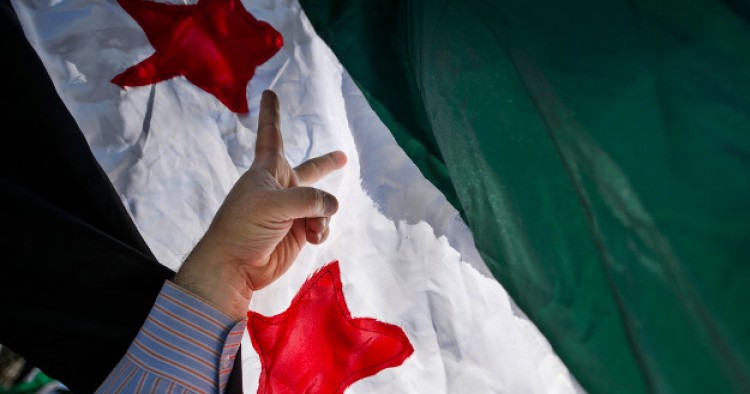Read the full article on The National Interest.
Since the cessation of hostilities began in Syria, activists in several cities have once again begun taking to the streets. What is telling is that in a number of the communities the activists have been brandishing the flag of the moderate Free Syrian Army (FSA), a repudiation of both the Syrian government and Al Qaeda affiliate Jabhat al-Nusra.
Many times it is small underreported events, like these citizen-led street protests, that can signal a pathway out of what has become an intractable civil war. What the street rallies may be revealing to us is that despite the dominance of radical jihadist groups like ISIS and Jabhat al-Nusra over the battlefield during the course of the war, a large swath of Syrian society sees neither these radical groups nor Assad as part of Syria’s future. This may indicate that while the jihadist groups have flourished during the most intense fighting, the future may lie with the more moderate mainstream opposition groups.
The signal Washington should be receiving from this is that Russia’s involvement and the extremely fragile cessation of hostilities have created a new strategic reality, which could allow the United States to regain its lost footing in Syria, escalate its efforts against ISIS and secure a strong negotiating position in future political transition talks. The United States should seize the opportunity to bring mainstream Syrian opposition forces, like the FSA, to bear in the war against ISIS, and then use the leverage that comes from liberating ISIS-controlled areas to exert influence on a future political transition process in Syria.
The Middle East Institute (MEI) is an independent, non-partisan, non-for-profit, educational organization. It does not engage in advocacy and its scholars’ opinions are their own. MEI welcomes financial donations, but retains sole editorial control over its work and its publications reflect only the authors’ views. For a listing of MEI donors, please click here.












